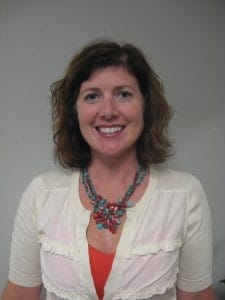Asbury Heights prides itself on being a leader in maximizing function and wellbeing in older adults. It’s an achievement that involves ongoing training for staff at all levels and having senior leadership stay abreast of the most current and effective approaches to the care of older adults.
Our focus on wellbeing extends to all of our residents from independent living to personal care, nursing care, rehabilitation and memory support.
In the area of memory support, Asbury has partnered with dementia care expert Teepa Snow, MS, OTR, to implement and expand on her techniques and teachings known as Positive Approach to Care.
This approach focuses more on physical cues rather than verbal cues when communicating with residents with cognitive impairments and how our brain controls our body and our behaviors. It’s an attempt to look at the world from the perspective of an individual with dementia.
When we use the Positive Approach to Care and approach a resident at Asbury who has cognitive impairment, we are using strategies that are scientific, based on the aging process. While the Positive Approach to Care is tailored for individuals with dementia or other cognitive impairments, it really is a natural progression of how to communicate with anybody.
The Positive Approach to Care may have been designed specifically for individuals with dementia or other cognitive impairments, but the methods involved in the training are reflective of excellent overall customer service and a common sense approach.
For example, instead of just walking into a resident’s room, we knock on the door or a table to get their attention. We call them by name. We move slowly. We approach them from the front. We get on their level to talk – sitting, squatting or kneeling. This approach minimizes the chance of startling the resident and gives them more control, which is in keeping with our resident-centered approach to care.
There are four levels of achievement and a coaching level involved in Positive Approach to Care training. All employees at Asbury are required to complete level one of training, and employees working on any memory support community are required to complete levels one and two – level one within the first 90 days of employment and level two within the first year.
Because the Positive Approach to Care represents a culture change, it needs to be reinforced regularly to become habit forming and a standard practice of care, and that’s where peer coaches are effective.
We have four or five peer coaches who have advanced skill and training. They’ve completed level three or level four of training. Peer coaches meet up with staff for 15-20 minutes each week. They demonstrate techniques and make sure staff is practicing everyday. Our peer coaches are helping us to achieve culture change in a positive way.
Asbury activity directors have also completed a similar advanced level of training as peer coaches. The services that activity directors provide to residents are centered around engagement and programming. Their expanded level of training provides them with additional knowledge about dementia and makes it easier for them to identify an individual’s abilities for social engagement. By having an expanded base of knowledge, activities directors can manage the social setting and develop opportunities for all residents to be active and involved.
For example, some residents are able to play bingo, but there are some who can’t but would still like to be involved. By understanding the abilities of each resident, we can have everyone involved. Some may play bingo, one may stack the cards in a neat pile and another may have another task. We want everyone to be engaged socially, and through Positive Approach to Care our staff is being given the training so that can happen.
Asbury will soon be the site of a Positive Approach to Care College where individuals from around the country will come to learn these innovative techniques. Teepa Snow and Asbury staff members will train and demonstrate elements of the Positive Approach to Care so that professionals caring for individuals with dementia can meet their needs through a more caring, thoughtful approach.
More details about the Positive Approach to Care College at Asbury Heights will be announced soon.
Cara Todhunter is senior administrative director, Health Care Services, for Asbury Heights. For more information, visit www.asburyheights.org.
Throughout the year, our writers feature fresh, in-depth, and relevant information for our audience of 40,000+ healthcare leaders and professionals. As a healthcare business publication, we cover and cherish our relationship with the entire health care industry including administrators, nurses, physicians, physical therapists, pharmacists, and more. We cover a broad spectrum from hospitals to medical offices to outpatient services to eye surgery centers to university settings. We focus on rehabilitation, nursing homes, home care, hospice as well as men’s health, women’s heath, and pediatrics.








